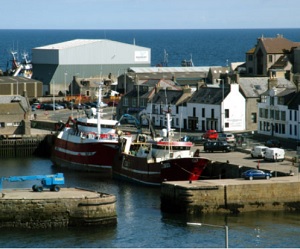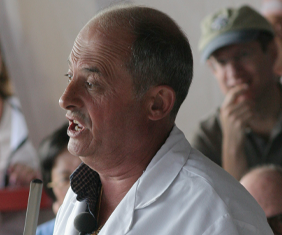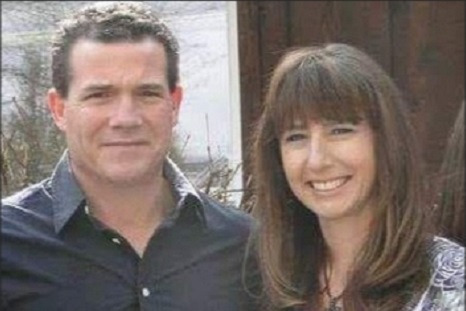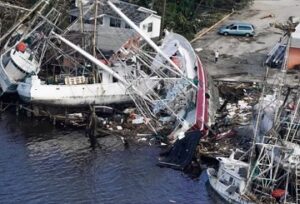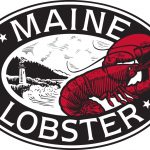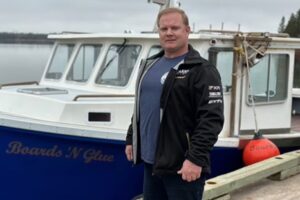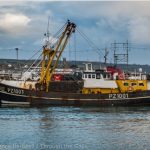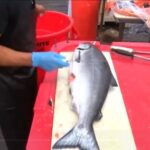Tag Archives: commercial fishing
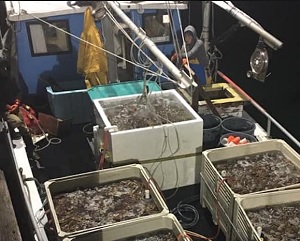
Coronavirus: Commercial Fishing During A Pandemic
My name’s Jake Bunch and I’m a commercial fisherman based out of Half Moon Bay, California. Jake started fishing in 2012. He fishes for king salmon, Dungeness crab, and sablefish, or black cod. Jake says he hasn’t been fishing anywhere near as much as he usually would this time of year. With shelter-in-place and other coronavirus related restrictions there just haven’t been enough buyers and reliable markets to make it worth it. Before COVID, about 75% of commercially fished salmon in California went to restaurants. Now, that market has mostly dried up. >click to read< 10:36
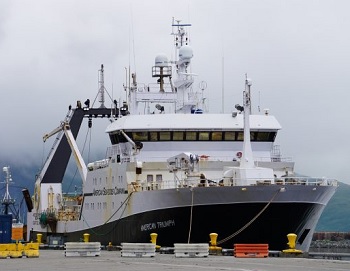
Seattle seafood company reports 6 more crew have Coronavirus in Dutch Harbor
The cases are onboard the American Triumph, which is operated by Seattle-based American Seafoods. Last month, the company announced that more than 100 crew members on three of the company’s six vessels had tested positive for the virus. At the time, experts questioned the company’s decision to mandate a five-day quarantine period, rather than the 14 days recommended by many health officials. American Seafoods subsequently said it had extended its quarantine period to two weeks. The cases announced Friday bring the total tally of positive cases on American Seafoods vessels to 117 since late May, according to spokesperson Suzanne Lagoni. >click to read< 10:18
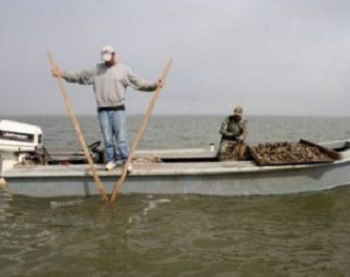
Apalachicola Bay Oystermen to Lose Livelihoods – Supreme Court defers ruling on water war
Florida is poised to close Apalachicola Bay to oyster harvesting in a board vote slated for July 22. The proposed closure is the most dramatic step to be taken by Florida during its longstanding complaint against Georgia. The closure would start Aug. 1 and extend through Dec. 31, 2025. “You’ve got people out there working in the bay,” commission Chairman Noah Lockley Jr., a commercial fisherman said at the commission’s July 7 meeting. “These people need to either get some help or get some retraining, or something. That’s what they’re supposed to do, but they’re just going to come shut the bay down. Possession of an Apalachicola Bay oyster in or on the bay would be banned, as would be possession of the wooden tongs used to harvest oysters. >click to read< 11:09
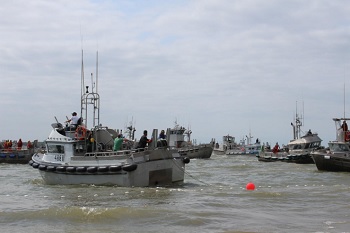
Bristol Bay Fisheries Report: July 13, 2020
Baywide daily harvest dropped below 2 million for the first time since July 4th. The total harvest is over halfway to the pre-season forecast swimming in at 25.2 million fish. Total escapement throughout the bay is now just over 12 million, and has now passed the pre-season escapement forecast. The total run in Bristol Bay so far this season is 38.4 million fish. Average fish per drift delivery was below 1,000 in every district of the bay yesterday. >click to read< 09:48
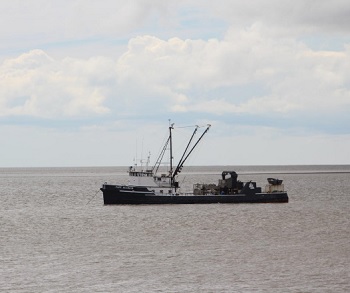
Bristol Bay Fisheries Report: July 11, 2020
The run in Bristol Bay is over 30 million fish, 30.8 million to be exact. Total harvest baywide was 2.1 million yesterday, bringing the season’s harvest in Bristol Bay to 20.9 million fish. Total escapement so far this season across the bay is 8.8 million. Fish per drift delivery saw a bit of a swing yesterday. Ugashik fishers averaged over 2,500 fish per delivery, the Naknek-Kvichak saw an average of over 1,000 fish per drift delivery, but other districts were between 180 and 700 fish per delivery. audio report, Messages to the fleet, >click to read< 17:26
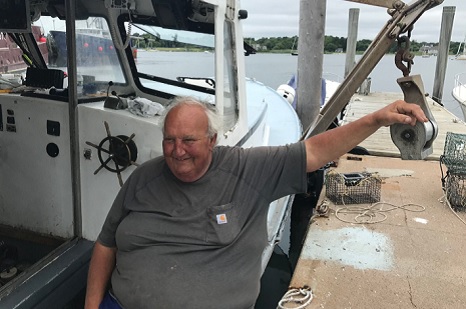
Bob Guzzo Talks Quotas, Offshore Wind, Coronavirus, and Fishing out of Stonington, Connecticut
“We’re giving up traditional fishing grounds that we’ve had for hundreds of years, that have fed the country, that are now going to light a light bulb and it’s not going to be worthwhile,” Guzzo said of the proposed wind farms located in federal waters. The location of the wind farms also destroys longtime fisheries, said Guzzo. “They’re taking away places that we’ve fished for this country over hundreds of years and we’re losing that ground,” he said.,, Quotas and Coronavirus, “I got tired of throwing fish overboard, I could never stand it. I started too long ago and never had to do this. The way they make you fish today is a crime,” >click to read< 08:01
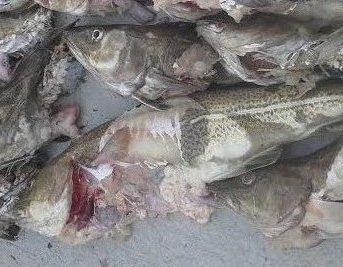
Can New England’s cod fishing industry survive? (How can the scientists and regulators ignore the ever increasing seal predation?!)
Gloucester, Massachusetts, grew up around cod. The waterfront teemed with boats and fishermen, heaps of fish thrashing in wire baskets. Boats were inherited from fathers and shipyards boasted of operating since 1684. As late as the 1980s, the cod were so abundant and large (30-50lb each) that the fishermen still brought in big hauls. Cod remains the state fish of Massachusetts., “We’ve been regulated out of existence,” former Gloucester fisherman Sam Sanfilippo said in 2017. “This used to be the biggest fishing community in the world. Ice companies, wharves, fish dealers, truckers, supermarkets … All through high school, I was always a fisherman. And here I am today: recycler, bike seller, furniture-maker. “I’m 50 years old and I don’t know what the hell I am.” >click to read< 07:30
Canada to ban ‘nuisance seals’ killing to keep access to U.S. market – Canada will abolish permits that allow the killing of “nuisance seals” by commercial fishermen and aquaculture in an effort to maintain access to the lucrative U.S. seafood market, Fishery management failure enacted for fish farmers >click to read<
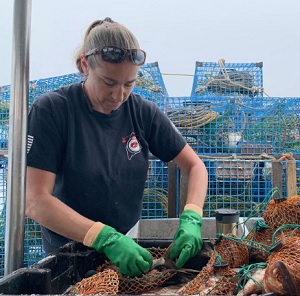
In Lobster Town U.S.A., When the industry suffers, the pain ripples.
Blaine Olsen, a lifelong lobsterman, was navigating his 30-foot boat off the coast of Stonington, Maine, when his sternman, who’s also his wife, yelled above the diesel engine’s din about the pittance the local cooperative was paying harvesters. He shot Ginny a doleful stare for a good five seconds. “Holy sh-t, man,” he said. “It costs us $600 a day to go out.” The dock price, $2.25 a pound for soft-shell lobsters, was half what it was a year ago, making it virtually impossible to earn a profit. The novel coronavirus has barely touched the public health of this corner of rural down east Maine, with Hancock County reporting just 16 cases and one death as of June 30. Its economic health is another matter,,, >click to read< 10:50
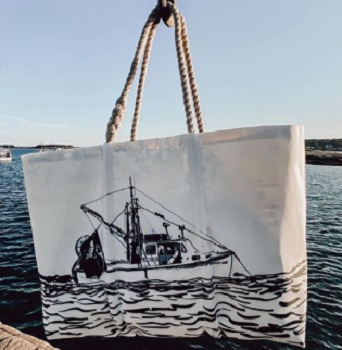
Honoring a legacy: Commemorative tote honors Maine fishermen who died at sea
When Hayley Brown’s father Captain Joe Nickerson died at sea, she said she was in shock. And while the pain of losing her father is still with her, she’s getting creative to honor his legacy and support the causes he was truly passionate about. Nickerson and his crewmate Chris Pinkham were fishing aboard the boat named after Hayley, the Hayley Ann, off the coast of Portland when it capsized in January., Nickerson was the chairman of the Maine Coast Fisherman’s Association (MCFA), so Hayley teamed up with them and Sea Bags to create totes in memory of her father. All proceeds from the sale of the bags will support MCFA in advocating for Maine’s fishing communities and the next generation of fishermen in Maine. On Father’s Day, the MCFA introduced the totes. >Video, click to read< 18:21
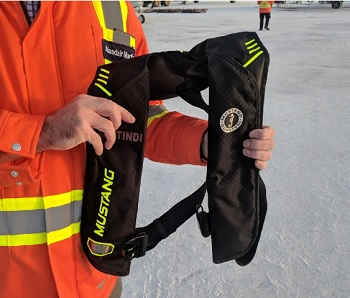
Transportation Safety Board says ‘countless’ reports show fishermen need to wear PFDs, use EPIRB emergency beacons
Transportation Safety Board of Canada (TSB) investigator Chris Morrow said it has concluded many times that fishermen need to wear personal flotation devices (PFDs) and they have to have emergency beacons on board. He said the investigation into the capsizing of the Ocean Star II lobster  boat found those to be consistent issues. An emergency beacon, known as an electronic position indicating radio beacon or EPIRB, might not have helped the crew aboard the Ocean Star II, but Morrow said they were in the water a long time without PFDs.,, On May 5, 2018, > Richard Moreau and Liz O’Connell <drowned after their small crabbing boat capsized near Port Medway, N.S. >click to read< 14:40
boat found those to be consistent issues. An emergency beacon, known as an electronic position indicating radio beacon or EPIRB, might not have helped the crew aboard the Ocean Star II, but Morrow said they were in the water a long time without PFDs.,, On May 5, 2018, > Richard Moreau and Liz O’Connell <drowned after their small crabbing boat capsized near Port Medway, N.S. >click to read< 14:40
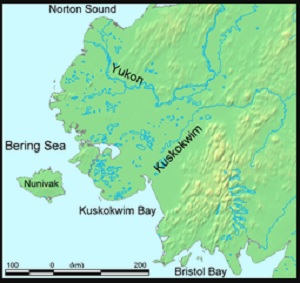
New Co-Op Allows Fishermen From Four Villages To Participate In Kuskokwim Bay Commercial Fishery
A group of fishermen in Quinhagak has formed an organization to revitalize commercial salmon fishing in Kuskokwim Bay. Their group is called the Independent Fishermen of Quinhagak Cooperative. On Monday, June 29, there will be a 12-hour commercial opening in Kuskokwim Bay from 8 a.m. to 8 p.m. Fishermen are limited to six-inch mesh or less. It’s the area’s first commercial opening in five years.,, The board has approved 70 fishermen to participate and has limited the co-operative’s eligibility to fishermen residing in four nearby villages—Quinhagak, Goodnews Bay, Platinum, and Eek. >click to read< >click to read< 11:22
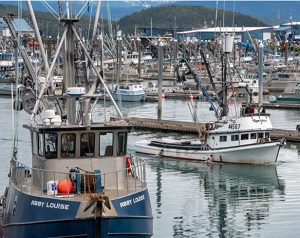
Salmon harvest coming in below forecast
Commercial harvests of Alaska’s iconic salmon are generally below expectation so far this season, particularly in the Copper River, where the preliminary catch to date includes 81,228 reds, 5,815 Chinooks and 1,296 chums. And overall for the drift gillnet harvesters and purse seiners in Prince William Sound, so far it is a smaller run that forecast, with a preliminary collective harvest of some 736,453 fish. That’s according to statewide data compiled by biologists with the Alaska Department of Fish and Game, who update their preliminary harvest report daily and post. >click to read< 09:42
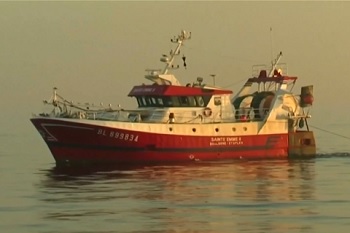
It’s four years since the Brexit vote. Now what?
On the 4th anniversary of Britain’s historic vote, Megan Revell explains where things stand with Brexit. At the time, Boris Johnson stressed there was no rush … Boris Johnson, 2016: “There is now no need for haste …” But now, as Britain’s Prime Minister, he’s under a time crunch. Boris Johnson, 2020: “Put a tiger in the tank (…) the faster we can do this, the better.” Britain officially left the bloc in January – but talks on a trade agreement – remember, one of the biggest issues of the Brexit debate – have made little progress. >click to read< 10:07
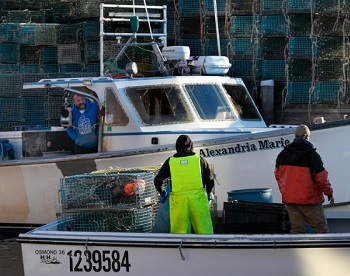
It’s time to open the economy back up! Maine Lobstermen Seek Ways To Prevent Financial Crash
Anti-glut tactics might include limiting days at sea, narrowing size limits or barring the catch of single-clawed lobsters to reduce the overall haul. In an online meeting Monday, Marine Resources Commissioner Patrick Keliher told Downeast lobstermen that he’s found no consensus on the best course of action. Lobsterman Jim Hanscom, of Bar Harbor, says he is wary of intervention by Gov. Janet Mills. “This governor scares me on a lot of levels, and the idea of her having the ability on shutting this fishery down or stopping dealers from buying, I think it’s just dangerous.” Keliher is scheduled to brief Mills on the issue Tuesday,,, >click to read< 10:40
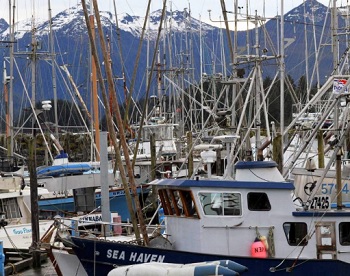
Coronavirus is making it difficult for Whatcom’s commercial fishing fleet this season
A new report from the Regional Economic Partnership at the Port of Bellingham indicates the local fishing fleet is dealing with a host of hurdles this summer, particularly for fishing boat captains who want to go to Alaska. Crew safety is proving to be particularly tough to figure out, as shown by the three American Seafoods fishing boats that had more than 100 crew members test positive for the virus after docking at Bellingham Cold Storage in late May and early June. The report surveyed 69 businesses tied to the industry, including 59 commercial fishing boats. >click to read< 09:11

Congressmen urge NOAA to extend at-sea monitor waiver for Northeast commercial fishing vessels
In a letter to Neil Jacobs, an acting undersecretary at the Department of Commerce, U.S. Reps. Seth Moulton and Bill Keating said a continuation of the at-sea monitor waiver is “critical to both protect the health and welfare of fishermen who are working to sustain their operations and to maintain our region’s seafood supply during the continued COVID-19 pandemic.” On March 24, NOAA Fisheries implemented the at-sea monitor waiver and took the observers off the boats. It has extended the waiver at least twice. >click to read< 07:44
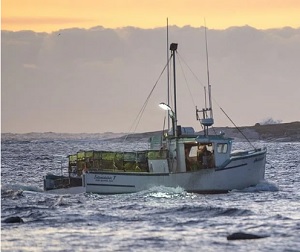
“Things could’ve been way worse”: Spring lobster season nears end amid coronavirus, “Things are stabilizing”
The Maritime Fishermen’s Union predicted a gloomy forecast for the spring season with the pandemic’s safety concerns, crushed markets and reduced processing capacity. But fishermen are taking it “day-by-day,” says the union’s executive director. “Things could’ve been way worse,” says Martin Mallet. “At least our fishermen have had a chance to go out and catch part of their catch.” Restaurants reopening is also helping market demand increase. >click to read< 08:49
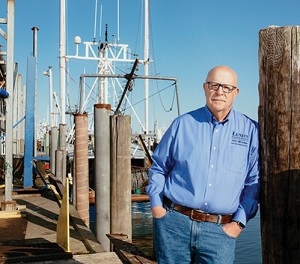
New Jersey’s Commercial Fishing Industry Struggles to Stay Afloat
In the wake of the pandemic, the industry—the fifth largest in the country—has been in rough waters. Will July and August bring relief? Atlantic Cape Fisheries, of which Sam Martin is chief operating officer, is a large commercial fishery as well as New Jersey’s largest producer of farmed oysters. “Last year we sold 2.5 million oysters, and we planned to sell 5 million this year, but sales so far are down about 80 percent compared to last year.” The bottleneck that Martin spoke of has throttled not only oystering, but New Jersey’s entire commercial fishing industry, “When I tell my boats to go fishing, I tell them, ‘Don’t bring in a lot,’” says David Tauro, general manager of the docks at the Belford Seafood Co-Op Belford, founded in 1953, is the smallest of New Jersey’s six commercial fisheries, but its pain is shared by the larger ones, such as Viking Village in Barnegat Light and Lund’s Fisheries in the state’s largest commercial fishing port, Cape May. >click to read< 17:53
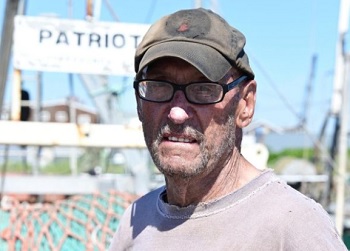
Long Island Coronavirus Hangover: Fishermen’s business remains in the doldrums even as restaurants reopen
While many local fishermen sell to local retailers, a steady local business even through the pandemic, the lion’s share of local fish go to companies that distribute to restaurants throughout the region and across the country. Three months of lockdowns over the coronavirus has backed up the market for the products, leaving warehouses for local frozen fish such as squid fully stocked, while drastically reducing demand for local clams and oysters..,, The summer is normally a prime time for fishing trawlers that harvest squid, said Greenport commercial fisherman Mark Phillips, but the market has been backed up by months of shutdowns and a closure of some export markets, including to China. Phillips said he was hopeful the start of restaurant reopening increases demand for squid, his primary fishery right now. >click to read< 07:47
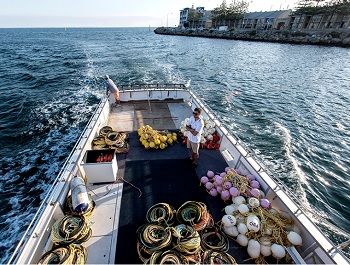
Can we really break the China habit?
China is a hard habit to break.Even after its early mishandling of the coronavirus disrupted the country’s ability to make and buy the world’s products, further exposing the faults of its authoritarian system and leading it to ratchet up its propaganda war, China’s economic power makes it the last best hope for avoiding a protracted global downturn.“When this all started, we were thinking, Where else can we go?” said Fedele Camarda, a third-generation lobster fisherman in western Australia, which sends most of its catch to China. “Then the rest of the world was also compromised by the coronavirus, and China is the one getting back on its feet.”“Although they’re just one market,” he added, “they’re one very big market.” >click to read< 10:56
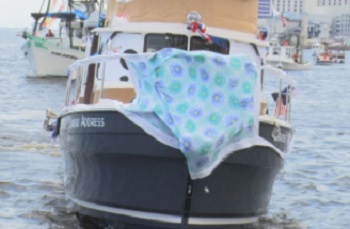
“This community is very resilient” – Coronavirus doesn’t stop 91st annual Blessing of the Fleet in Biloxi
It’s going to take more than a tropical storm and a worldwide pandemic to stop the Blessing of the Fleet in Biloxi. On Sunday, the 91st annual event took place with a few changes, including one that brought back a tradition to the tradition. Normally, the holy water comes from a much bigger boat, but this year because of COVID-19 concerns, it was launched from the stern of the Terri Lynn – the shrimp boat of this year’s Shrimp King Eddie Rhodes. “It’s a big honor to have everybody on it,” he said. “This doesn’t usually happen.” >click to read< 08:29
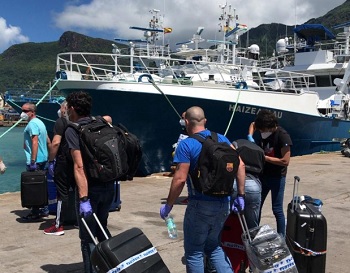
Stranded at Sea in The Time of Coronavirus
Spanish fisherman Josu Bilbao boarded a Qatar Airways flight headed for the Seychelles in January, just as he had done for the past 15 years. Ahead of him, four uninterrupted months of hauling tuna out of the glistening Indian Ocean. As it turned out, catching the fish was the least of the problems for the 56-year-old captain of Albatun Tres, one of the world’s largest tuna fishing boats. The coronavirus then swept the world, countries shut borders, planes stopped flying and Spain became one of the countries worst hit by the virus. Bilbao and his crew were stuck. As the Indian Ocean fleet shift was extended ship owners tried to figure out a way to get workers home. Aboard the ship avoiding infection became the priority. >click to read< 09:43
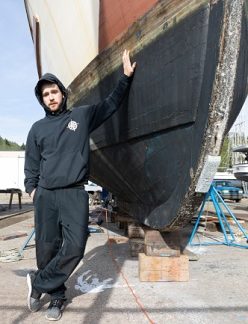
Fishermen’s Superstition’s: No bananas! No Whistling! But above all, it’s bad luck to be superstitious!
Luke Whittaker set out to learn whether there are superstitions that live on among local fishermen. Here’s what he heard. Jerry Matzen III, commercial fishermen “Hang your coffee cup mouth towards the stern so you don’t sink. And no whistling in the wheelhouse or cabin — otherwise you’ll whistle up a storm, like we are having today. I learned the coffee cup one from Kerry Suomela Sr. when I worked on the F/V Southern Cross and it always stuck with me.” Tim Teall, commercial fishermen “Well, to begin with, you never want to paint your boat green because it’ll beach itself in a storm. Never set a coffee cup or a bucket on the boat upside down — the boat will roll over! Don’t whistle in the wheelhouse, because it’ll make it get windy out. But above all, it’s bad luck to be superstitious!” >9 photos, click to read<10:41
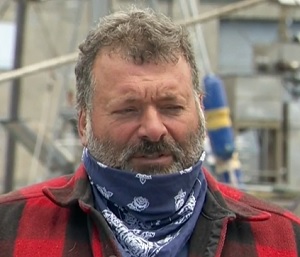
Fisherman’s Wharf: Restaurant threatens commercial fishing operation’s survival over a parking lot conflict
The parking area at Pier 47 could be used for al fresco dining as soon as next week but that space is where Giuseppe Pennisi, of Pioneer Seafoods, has been selling fresh-caught fish right off his boat for years. Now, the Port of San Francisco has ordered him to stop. “They said our business was causing problems for Scoma‘s but there’s no one even down here anymore except for people buying a few fish,” Pennisi said. Scoma’s owner Tom Creeden says they’ve submitted plans to Port of San Francisco officials to use the parking space for outdoor dining. Pioneer Seafoods will have to shut down its operations by June 15 after being given less than five days notice. It would also be a blow to Glide Memorial Church in San Francisco, which receives 3,000 pounds of fish from Pennisi every two weeks to feed the homeless. >video, click to read< 08:37

Golden and Graves introduce bi-partisan legislation to make disaster relief funds available to fishermen
In a bipartisan effort, Rep. Jared Golden (D-Maine) and Rep. Garret Graves (R-Louisiana) on Thursday introduced legislation to make additional disaster relief available to thousands of fishermen whose businesses are harmed by a pandemic. The legislation would amend the Magnuson-Stevens Fishery Conservation Act to allow fisheries disasters to be declared due to pandemic, such as Coronavirus. My bipartisan bill with Congressman Graves would make pandemics an allowable reason to declare a fisheries disaster, opening up a process to direct federal relief funds to affected fishing communities. >click to read< 11:55
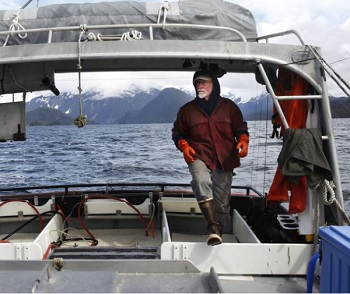
A win for Alaska trollers – Judge denied request for injunction to keep season closed
Magistrate Judge Michelle Peterson, of the US District Court of Western Washington, ruled on Tuesday (6-9-20) that an injunction petition filed by a Washington state environmental organization to protect killer whales circumvents established fisheries law. During oral arguments before her in May (5-28-20), Judge Peterson put hard questions to counsel for the Wild Fish Conservancy about whether the federal court had jurisdiction over the case, when the matter had not been tested before the Alaska Board of Fisheries, or the National Marine Fisheries Service — organizations which have regulated fisheries for the last four decades under the overall umbrella of the Magnuson-Stevens Act. So Judge Peterson’s ruling wasn’t unexpected. Nevertheless Kurt Beardslee, executive director of the Conservancy, says he’s disappointed. >click to read< 08:14
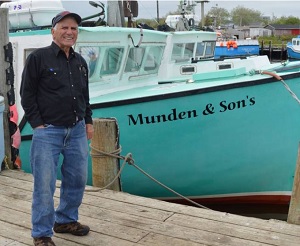
Glace Bay Fisherman celebrates 80 consecutive years of working on the water
In a year that has been anything but normal, Jim Munden continues to be a figure of both consistency and longevity on the Glace Bay wharf. The longtime fisherman, who will celebrate his 89th birthday this summer, still plays an active role in the former coal mining community’s other big industry. And this year marks the 80th consecutive year that Munden has taken to the coastal waters off Cape Breton to ply the trade he first experienced as a nine-year-old boy.,,, When asked about the beginnings of his lifelong career, Munden likes to mention that it all started in a foreign country. “I was born in Newfoundland back in 1931 when it was still part of England,” he recalls.,, they moved to Glace Bay when I was a boy.” That’s where he started fishing. And at his side the entire time has been Dot (Billard), his childhood sweetheart, wife of almost 70 years and mother of their six children. >click to read< 10:54






